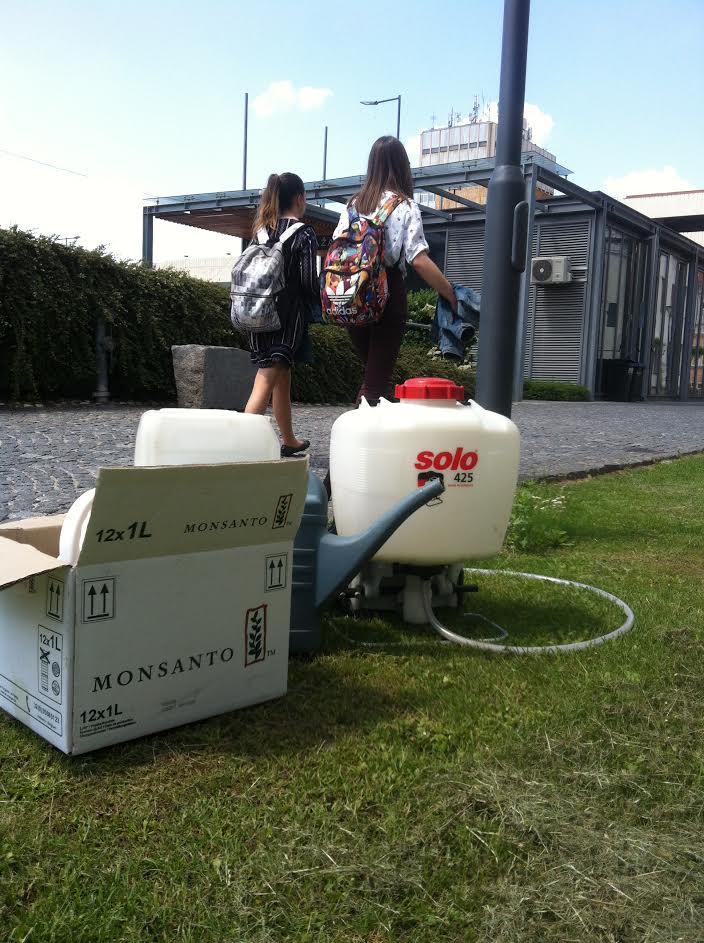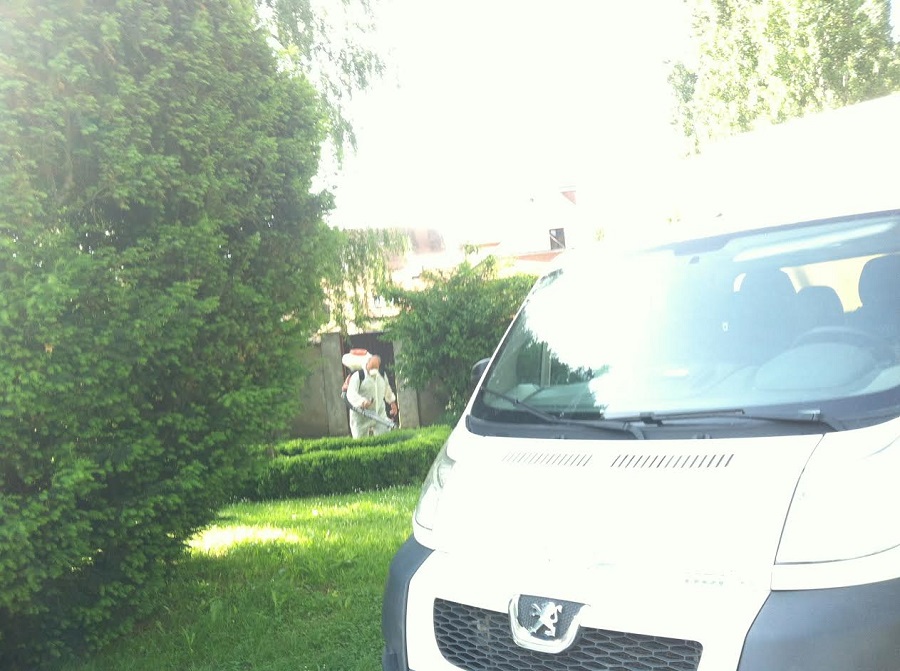July 8, 2019 – Zagreb joined the European Pesticide Free Town network last year. Will Varazdin be next?
One of the things I have appreciated most about moving from the island of Hvar to Varazdin in northern Croatia has been the diversity of people I come into contact with. I love Hvar (and am currently enjoying that endless sunshine) but with an economy so focused on tourism, it is not exactly representative of daily life in the rest of Croatia. And as TCN moves away from a main focus on tourism to other aspects of life, it has been fascinating to learn of various initiatives around the country, and to meet people whose passions are far away from tourism.
I have a friend who lives in Varazdin and commutes to Zagreb each day, and we have a nice chat as we drive in together on the days when I have business in Zagreb. He has introduced me to various people and ideas, including Natlija Svrtan of Earth Trek (Zemljane Staze in Croatian), an environmental group which is working on – among other things – getting rid of the use of pesticides in public places in the towns and cities of Croatia. I asked Natlija to write a piece for TCN on the subject. Here it is. Will Varazdin and other Croatian towns and cities follow Zagreb’s lead?
Pesticide Free Zagreb – safe for citizens, excellent for biodiversity
Zagreb is Pesticide Free Town – will other towns in Croatia follow the example?
Since February 2018, Zagreb has been a Pesticide Free Town – which means that Zagreb does not use pesticides in public places.
The Mayor of Zagreb, Mr. Milan Bandić has recognized this initiative as a valuable contribution to improving the living conditions of citizens of Zagreb. Therefore, Mr. Bandić signed the Pledge with which he commits to phase out pesticides in public places. With this step, the citizens of Zagreb can enjoy lying on the grass without worrying if they are inhaling dangerous toxins, and their pets can run around without having allergies and acute poisoning from chewing the grass.

By signing this Pledge, Zagreb has become a member of European Pesticide Free Towns Network, a network of European towns who replaced pesticides with sustainable, non-hazardous alternatives. This Network is established by PAN Europe, together with its member organizations. Pesticide-free towns have teamed up within this Network with the aim of creating a platform for linking and sharing experiences, and effectively supporting cities in transition.
The use of pesticides in public places is considered to be unnecessary. While gardeners in Pesticide Free Towns use mechanical technics such as hand weeding, or machine treatment with hot water or steam, biologists and city leaders are trying to promote the “return of Nature back to the towns”, by convincing people that, for example, plants on the pavements are not “an ugly scene”, and that native wildflowers are as beautiful as those cultivated. With accepting native plants, and by accepting so-called weeds on lawns, we are contributing to biodiversity and to the return of pollinators, besides sparing the animals of direct poisoning.
Pesticides have multiple negative effects:
– Pesticides have a direct impact on human health, and although the effects of pesticide use do not show directly and at the moment of consumption, pesticides certainly have a significant impact on human health. They are carcinogenic, cause non-Hodgkin’s lymphoma, affect reproductive health – conceiving problems, cause abdominal pain, obesity, diabetes, allergies, neurological problems, agitation, asthma, Parkinson’s disease, and many other diseases and disorders.
– The application of pesticides is never limited to the area for which the pesticide application is intended, but the effects of pesticides are spread far beyond the scope of application. Pesticides spread with air and water after being washed out by irrigation or after rain. Unfortunately, in almost all tested water samples (in Western European countries) residues of pesticides were found.
– Pesticide cause direct harm to animals and insects that inhale or digest pesticides, or eat animals and bugs that are intoxicated by pesticides; this causes the imbalance in nature by killing bugs which are, or predators, or the food for other animals; direct harm applies especially to amphibians and fish which have permeable skin and therefore absorb toxins with their whole body surface. By choosing alternatives to pesticides, the impact on soil, air and water pollution, especially the groundwater that is a source of potable water is eliminated. Animals and plants are not affected by these toxins, and the biodiversity is improved.
In 2018. the Earth Trek association conducted a campaign urging all the cities in the Republic of Croatia to follow the examples of cities in Western Europe countries. Zagreb and Ozalj are those who committed to phasing out pesticides.

In the Town of Varaždin the use of pesticides is not banned.
Varaždin has beautiful parks and green areas which are probably treated with pesticides. An especially endangered group are children – who run around grass, roll on it and expose themselves directly to pesticides.
Since the use of pesticides is not limited only to the application spot (which was proven by taking the soil samples of children’s playgrounds), children are exposed to dangerous toxins, even if those were not applied in kindergartens, or on the playgrounds. Especially worrying is the fact that most of these toxins are endocrine disruptors and have long-term effects on health.
The town of Varaždin hasn’t responded to our request to sign the Pledge.
We haven’t received the explanation on cancelled meeting in September last year, accusations of writing inaccurate allegations on our web page, nor the promised notification after planning to ask the Town’s Utility Company for an explanation of pictures we took in May 2018.
Earth Trek wishes the best for the citizens of Varaždin. Besides the elimination of toxic substances from public areas, air, soil and ground water, the transition to a pesticide free concept would open new job positions, and would also promote the Town of Varaždin trough Pesticide Free Towns marketing tools.
We believe the health of the citizens should be everyone’s first concern, and even though it seems that the use of pesticides is the cheapest way of green areas maintenance, the externalities show that the costs of the treatment of the illness caused by the use of pesticide cost the society and the government even more.
It takes time for the pesticides to decompose, particularly for those persistent, and it takes time for nature the re-establish its balance – that’s why we need to act immediately and start applying sustainable systems, in order to leave a healthy world to our children.
For more information about Earth Trek in Croatia, visit the official website.







